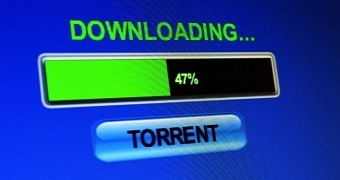The Recording Industry Association of America, alongside other rightsholders, is not happy with the DMCA takedown process anymore and wants ISPs to take on the job of filtering out pirated content.
The RIAA and 14 other groups of rightsholders are asking the US Copyright Office to cut out the Digital Millennium Copyright Act (DMCA) because it's not working. They believe it offers legal immunity to ISPs who simply aren't doing enough to fight against online piracy.
"The extremely burdensome - and ultimately ineffective - notice-and-takedown process is hardly a fair exchange for the highly valuable immunity the DMCA safe harbors give service providers, allowing them to continue profitable business operations while avoiding liability for copyright infringement and the potential for statutory damages," the request reads.
They also want the DMCA to demand that content be removed "expeditiously" because even a very short window of infringement can be damaging to pre-release or newly-released content. Therefore, ISPs taking days to deal with a takedown request is no longer acceptable.
Content flagging
So how do they want ISPs to perform this kind of magic? Well, they want them to implement a filter to flag pirated content immediately.
"One possible solution to this problem would be to require that, once a service provider receives a takedown notice with respect to a given work, the service provider use automated content identification technology to prevent the same work from being uploaded in the future. Another option would be to require the use of such technology to identify and take action with respect to known third-party copyrighted works at the time of upload or sharing," they write.
This, of course, is just the rightsholders throwing blame around. First it was the search engines that weren't taking out links to pirate sites and now it's the ISPs, which they seem to target solely because no court has so far held one of them liable for the activities of one of their customers.
Google points out system flaws
Google wrote a letter to the same Copyright Office on this issue and told them that in January, out of the millions of DMCA requests received, over 99% weren't even indexed in their search engine. Google has gone above and beyond over the years to respond to such requests, but it seems that copyright holders simply try to waste their time.
Still, Google has implemented the Content ID system on YouTube to detect copyrighted content, and it's even proposing that they allow copyright holders to send possible URLs even before they are actually created and have them flagged in advance.
However, asking ISPs to flag pirated content might be taking things a step too far because that involves a loss of privacy and a lot more involvement from the companies in what customers are doing.

 14 DAY TRIAL //
14 DAY TRIAL //